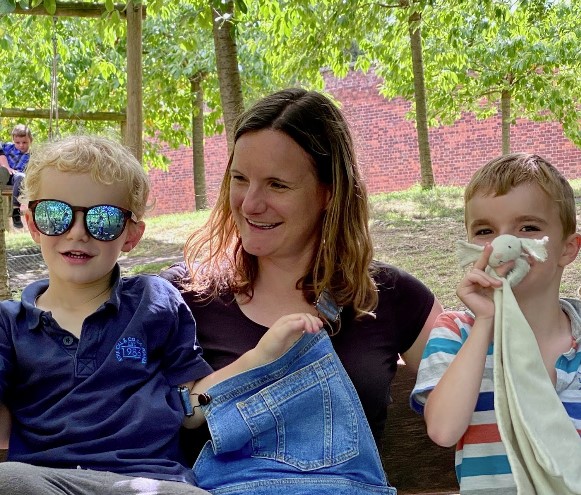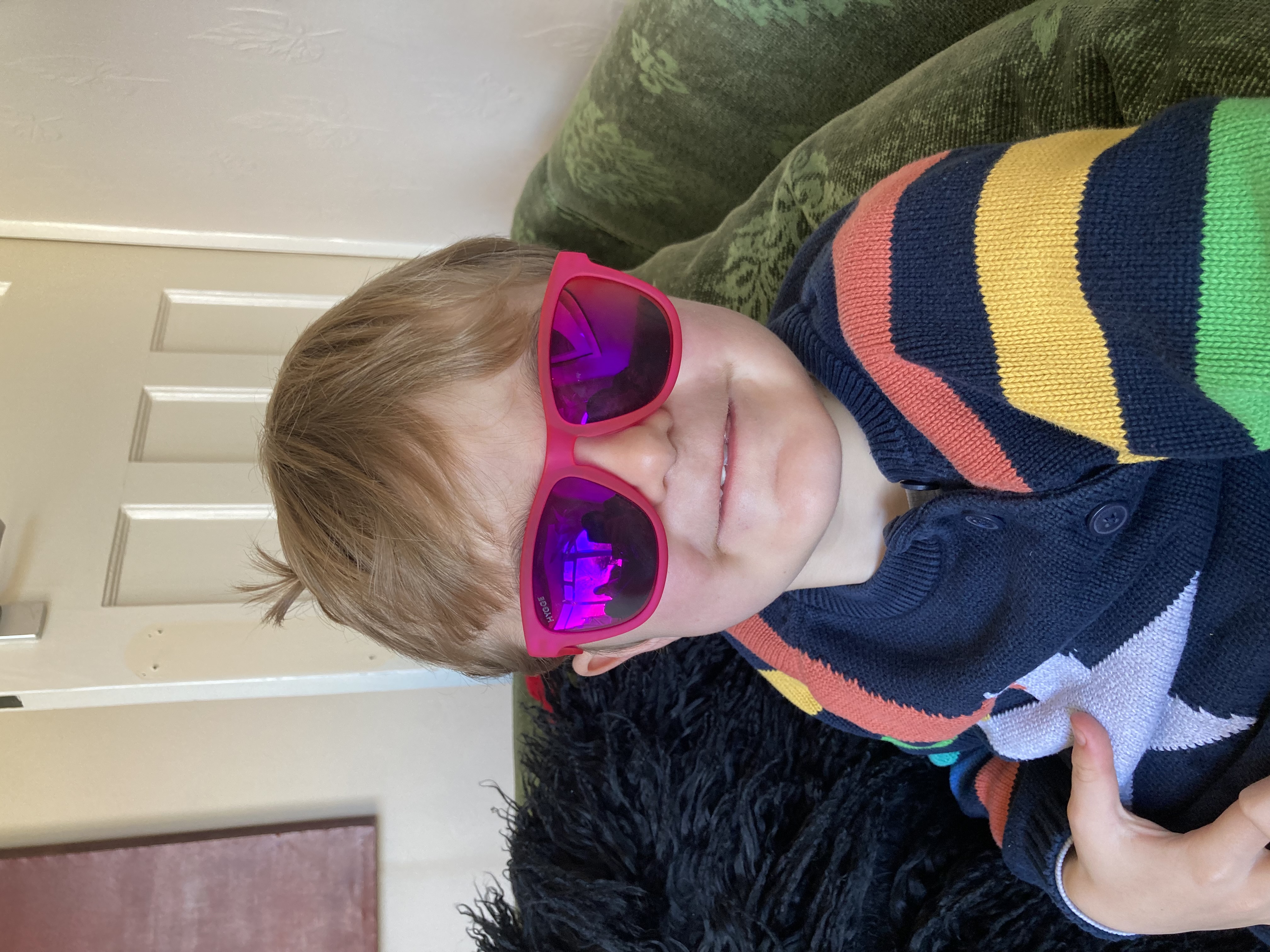Lizzie Deeble, Action Duchenne Project Assistant and Duchenne Parent, shares the some of the challenges facing her son Sebastian at this stage of his Duchenne journey.

There is a time, the time when your child begins to be embarrassed when you kiss them goodbye, when they’ve stopped looking at you like you hung the moon when you enter the room. When they sigh and roll their eyes instead. When you know the days at their nurturing, supportive primary school are drawing to a close. When their awareness grows to encompass not only themselves but where they fit into their family, their friendship group, their class, their school and the big wide world. When you know the road through hormones and first loves and drunken nights might leave you wishing yourself back to toddler tantrums. Parenting is a constant bittersweet process of change, of loss and gain, a heady mix of witnessing growth and mourning what has gone.
For parents of those living with Duchenne, there is so much more. My almost 9 year old son is losing his ability to walk. It has happened so much faster than I thought it would. A year ago, he was still just able to get up from the floor. Now he struggles to walk more than a few metres, his heels lifting high up from the floor and his whole body swaying awkwardly with the effort.
I watch him grappling with the realisation of the things he can no longer do, of the expanding gulf between him and his peers. The gulf that cruelly grows as the realisation does. While others his age are beginning to experience flutters of a fledgling independence, he is losing his. I do not have to grapple with the worries of other parents, who wonder when their child can cross the road to school on their own, whether they can go to play football in the park without supervision, whether they can be left at home alone. I have travelled backwards, to a time where it is hard to leave the room in case Sebastian needs to get up or sit down, in case he falls, in case he drops something, in case he needs me. I am on high alert for his call for help. His ability for any self care has diminished while his size and weight has increased. It is a kind of reverse parenting that is difficult to describe.

Daily I bear witness to his struggle to process the knowledge that the time has come for a move to a specialist school. He veers from sanguine acceptance, nervous excitement and acute sadness with barely a moment in between. This is not just a move of schools. For all of us it is an acknowledgement of Duchenne and of all the complexity it brings.
For children and young people living with Duchenne, this stage is a spectacular collision of the pull of independence, the loss of mobility, the increase in awareness and the hormone explosion of adolescence. They need to pull away at the same time as they become unable to manage the smallest daily tasks independently. They need to forge their own identity within a world that is still not set up for disability. They need to negotiate friendships while the playing field grows ever more unequal.
While there have been many advances in physical care for young people living with Duchenne, there is very little to support their emotional health and wellbeing as they reach this point. We need to work to expand their worlds when it feels like they are closing in, we need to give them the support they need to process the inevitable grief that comes with a loss of function. We need to provide them with the opportunities for as much independence as possible, to empower them to know that there is so much they CAN do. And while we’re doing that, we need to fight to prepare the world for them to be in it. To increase accessibility, to change attitudes so that people with disabilities are valued for what they bring to the table. We need to raise expectations. We need to give our young people the tools, confidence and support they need to dream big. Then we need to make sure that society is ready for them to realise those dreams.
Are you a parent/caregiver of a child living with Duchenne? Do you work in a school or clinic setting supporting someone living with Duchenne? We want to hear your experiences, and as a thank you you could win a £20 Amazon Voucher
We want to make sure that support is available to young people aged 8 to 14 at the most important stages of their Duchenne journey.
We would like to thank Contact (Pears Foundation) who have provided financial support for this much needed project.

 Take part in our Turning Point survey for a chance to win a £20 Amazon Voucher!
Take part in our Turning Point survey for a chance to win a £20 Amazon Voucher!
